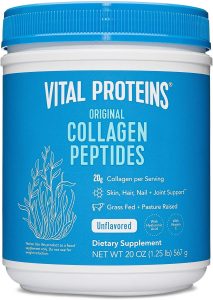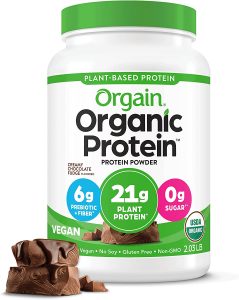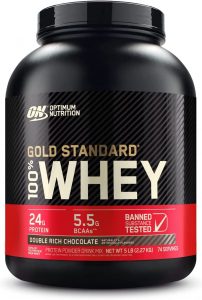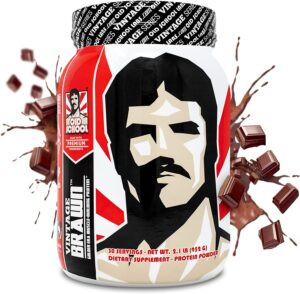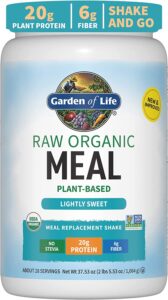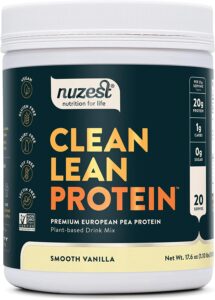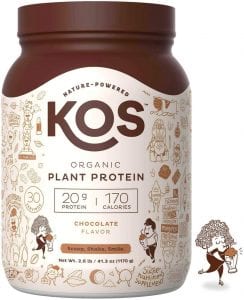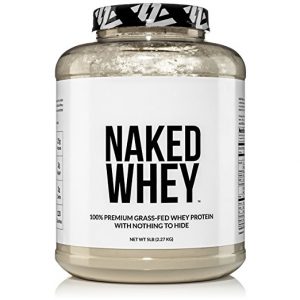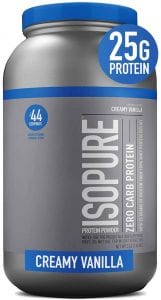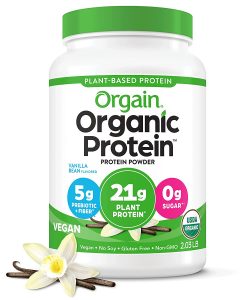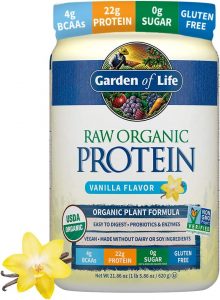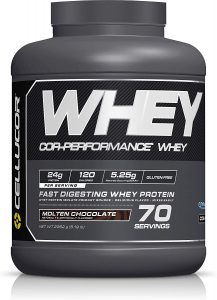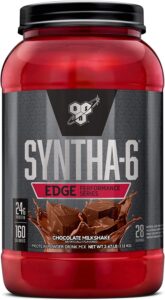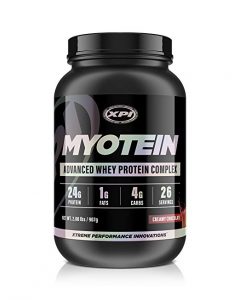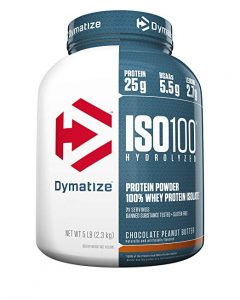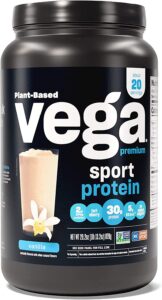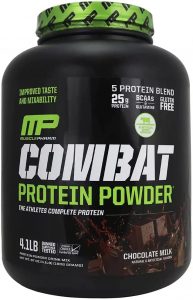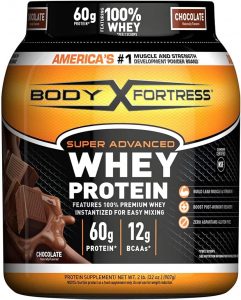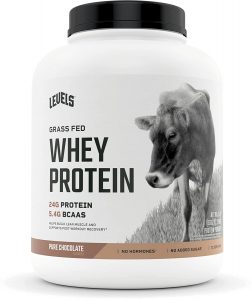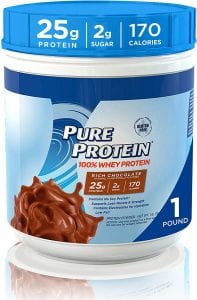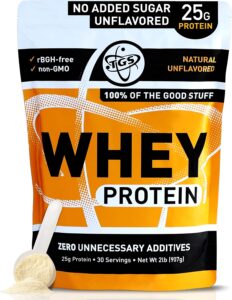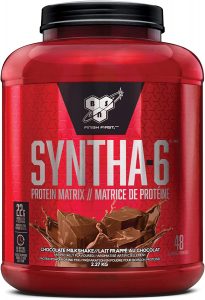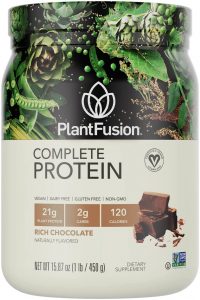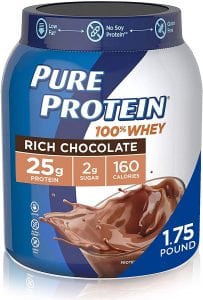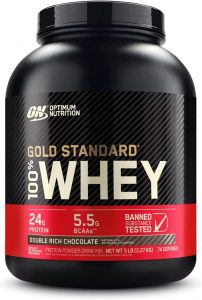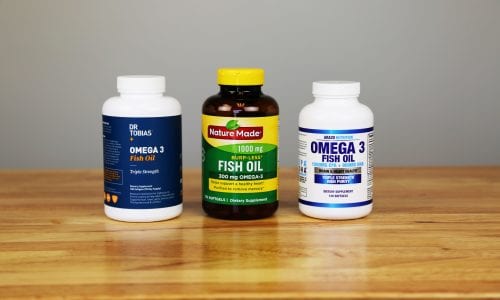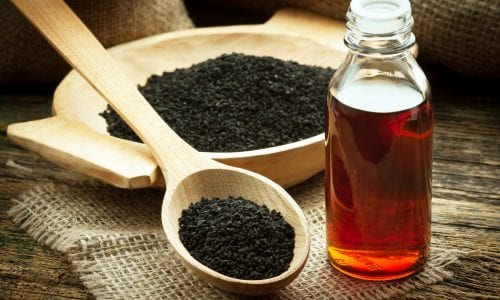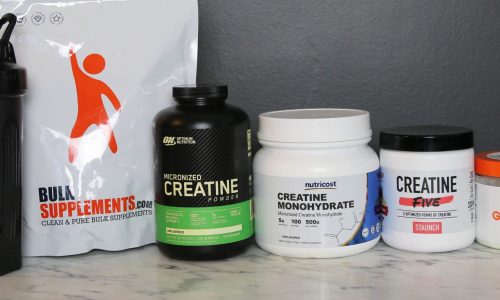The Best Protein Powder

Our Review Process
Don't Waste Your Money is focused on helping you make the best purchasing decision. Our team of experts spends hundreds of hours analyzing, testing, and researching products so you don't have to. Learn more.
Our Picks For The Top Protein Powders
- 1. Vital Proteins Gluten & Dairy Free Protein Powder
- 2. Orgain Prebiotic Dairy-Free Protein Powder
- 3. Optimum Muscle Enriching Whey Protein Powder
- 4. Old School Labs Keto-Friendly GMP Certified Protein Powder
- 5. Garden of Life Healthy Gluten-Free Protein Powder
- 6. Nuzest Clean Lean Soy-Free Low Carb Protein Powder
- 7. KOS Organic Plant Based Protein Powder, Chocolate
- 8. Naked Premium Grass-Fed Whey Protein Powder
- 9. IsoPure Vitamin & Mineral Blend Protein Powder
- 10. Orgain USDA Organic Prebiotic Protein Powder
- 11. Garden of Life Muscle-Repairing Raw Protein Powder
- 12. Cellucor Fast Digesting Whey Protein Powder
- 13. BSN Syntha-6 Adult Protein Powder
- 14. XPI Advanced Myotein Protein Powder
- 15. Dymatize ISO Full-Spectrum Protein Powder
- 16. Vega Sport Keto-Friendly NSF Certified Protein Powder
- 17. MusclePharm University-Formulated Combat Protein Powder
- 18. Body Fortress Strengthening Workout Protein Powder
- 19. Levels Sugar-Free Athletic Protein Powder
- 20. Pure Protein Gluten Free Chocolate Whey Protein Powder, 1-Pound
- 21. TGS Vegetarian Soy-Free Protein Powder
- 22. BSN Muscle Growth Protein Matrix Powder
- 23. PlantFusion Vegan Naturally Flavored Protein Powder
- 24. Pure Protein Gluten Free Chocolate Whey Protein Powder, 1.75-Pound
- 25. Optimum Nutrition Hormone-Free Recovery Protein Powder
Support your hair, skin and nails by adding this protein powder to your diet. The powder dissolves quickly in both cold and hot liquids, so you can mix it with everything from a fruit smoothie to a cup of coffee. It works with a variety of diets, including gluten-free, Paleo, dairy-free and Whole30.
Gluten- and Dairy-FreeNot only is this protein powder gluten- and dairy-free, but it's also made without the addition of sugar.
This one-pound tub of organic, plant-based protein is made with pea, brown rice and chia seeds. It contains 150 calories per serving, and it's vegan, gluten-free, dairy-free, lactose-free, soy-free, kosher, non-GMO and has no artificial ingredients. We also love how much fiber it contains.
Great NutritionThis organic protein powder is a vegan, gluten-free protein powder with no artificial ingredients.
During our testing, we found that this protein powder's double rich chocolate flavor tasted and smelled a lot like hot chocolate or chocolate milk — delicious. The package is user-friendly and makes it easy to get the perfect scoop. We also found that it mixed incredibly easily.
Handy OptionWith its ease of use and tasty flavors, this protein powder is a great pick for gym rats and newbies alike.
Designed for use after a workout, this protein powder offers a full 24 grams of protein in every serving. The formula utilizes USDA beef, farm fresh eggs for essential amino acids and hormone-free milk to give exercise enthusiasts the protein boost they need after running, playing sports or lifting weights.
For the Exercise EnthusiastThis protein powder is available in eight different flavors, including chocolate, pumpkin spice and banana milkshake.
Buying Guide
Protein is a key part of any healthy eating plan. It helps you gain muscle and lose fat as well as provide essential nutrients every body needs. Unfortunately, getting enough lean protein throughout the day can be difficult. Oftentimes you’re on the run and there simply isn’t time for grilling up some chicken or fish. A busy schedule isn’t an excuse for skimping on nutrition, though. Protein powders are a convenient solution to keep you satisfied and on track with your goals.
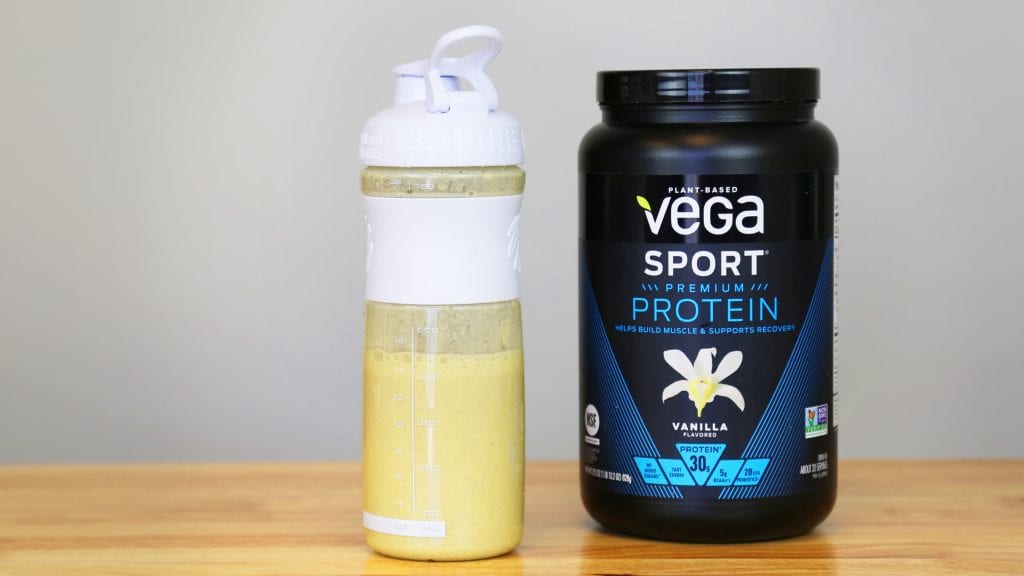
There are whole aisles devoted to protein powders, including whey, casein, soy and pea to name a few. But not all protein powders are created equal. The nutritional quality, as well as the source of the protein and additional ingredients, varies widely between different manufacturers.
Whey has long been considered the gold standard of protein powders. It comes from cow’s milk and is the watery liquid extracted during cheesemaking. Its claim to fame is that it contains all of the amino acids (or building blocks of protein) that you need for muscle repair after workouts. Similarly, casein protein is also derived from cow’s milk. However, it takes longer to absorb and digest. It provides excellent overnight fuel for muscles.
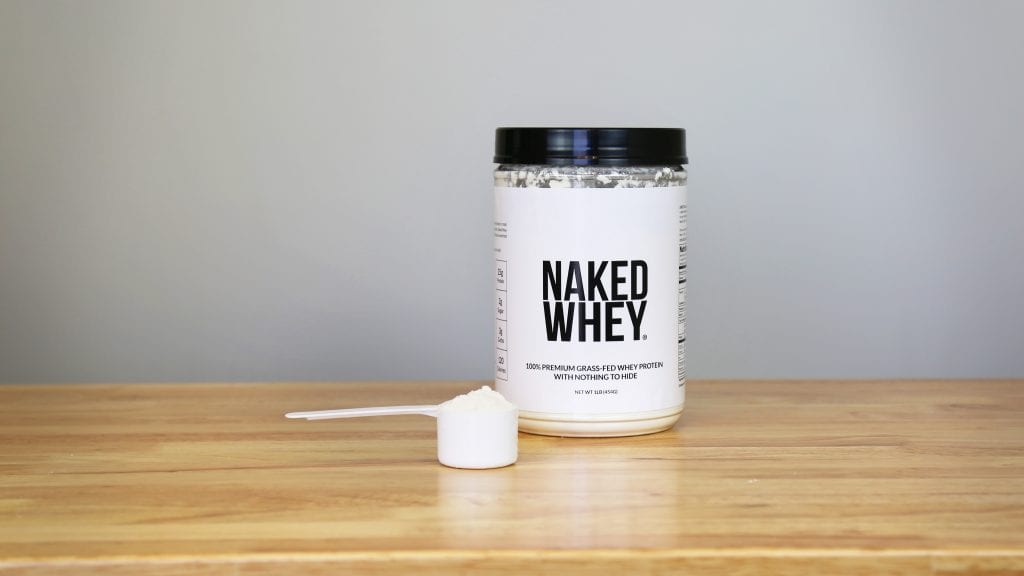
There are also several plant-based and vegan protein sources. While many do not contain the full array of amino acids your muscles need, soy is a complete protein. Soy protein isolate tends to be a better option than concentrate because it contains higher levels of protein.
Rice, pea and hemp proteins are good options for anyone with a soy allergy. Unlike soy, these do not contain the full array of amino acids your muscles need on their own. That means manufacturers mix and match a few different plant-based proteins to form a complete protein and include all the amino acids. Additionally, plant-based proteins tend to have an earthy flavor to them.
In addition to unique protein sources, each brand offers a wide variety of flavor options, from minimally unflavored to outrageous combinations like birthday cake or peppermint mocha.
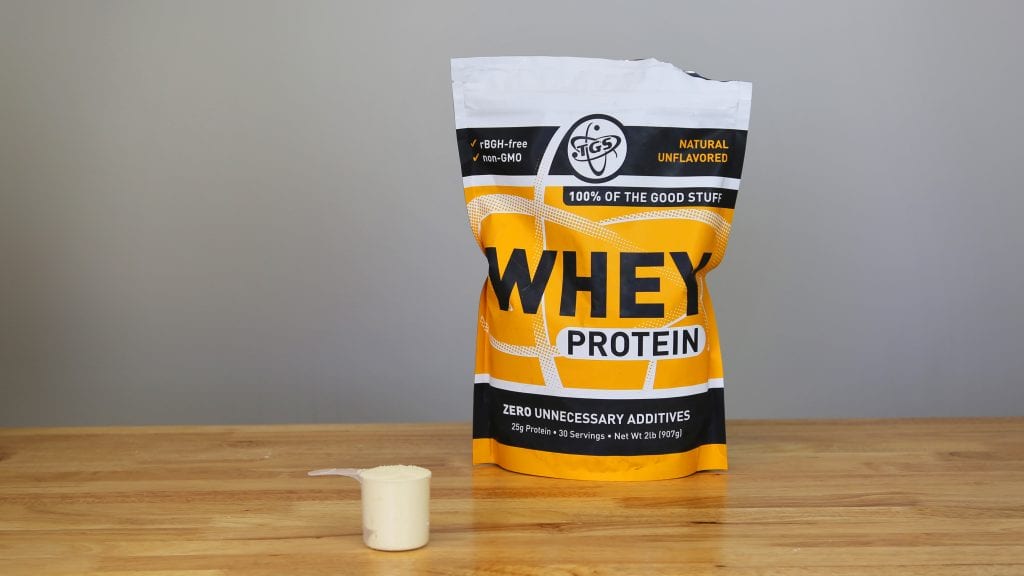
Then, there is texture and price to compare and factor into your protein powder decisions. You should also be prepared for sticker shock when you first venture into the protein powder aisle. The prices for single tubs of protein powder may seem exorbitant, but it’s helpful to look at the high number of servings each one contains. In fact, one tub can last for months and supplement or replace many meals.
With so many options on the market, picking the right protein powder for you can be difficult and overwhelming. The best way to decipher which protein powder is right for you is to look at your goals and how you want to incorporate the supplement into your diet. Certain types of protein are better for muscle gain while others excel at curbing appetite. Once you know what your goals are, then you can stroll confidently into the protein aisle.
In recent years, there has been an overall shift toward cleaner protein. Now, manufacturers are paying more attention to and promoting what’s not in their product as much as what is in the recipe. For example, some powders have just one ingredient. When it comes to supplements, less is more. The added ingredients can counteract the good work of the protein. In fact, adding sugar and processed ingredients can skew otherwise healthy foods into the junk food category quickly.
What to Look For
- Do your own research and read the ingredient labels and nutrition facts to see exactly what is and isn’t in each product.
- Whey protein is the most common protein source in protein powders, and it comes from cow’s milk. Anyone with a dairy allergy or sensitivity will want to steer clear of whey.
- Protein powder should contain all the essential amino acids muscles need to repair and grow. That makes it a “complete protein.” Manufacturers generally include this information prominently on the label.
- There are many plant-based protein options, including pea, rice, hemp and soy. These are great options for vegetarians, vegans and anyone with allergies.
- Don’t just focus on the protein source. Additives and other ingredients make a big difference in taste, nutrition quality and texture.
- Some protein powders mix evenly when stirred, but most work better in a shaker bottle or a blender.
- Protein powders containing casein, whey isolate or soy are better for weight loss and curbing appetite than other sources. They are satiating and low in calories, as long as the formula includes no added sugars.
This review has been updated by DWYM staff.
More to Explore
Long ago, ancient civilizations realized the importance of protein, generally in the form of meat, for athletes and strength. However, it wasn’t until the early 20th century that bodybuilders buoyed the first protein supplements. As bodybuilding became more popular in the 1970s and 1980s, so too did the protein powder and supplement market.

